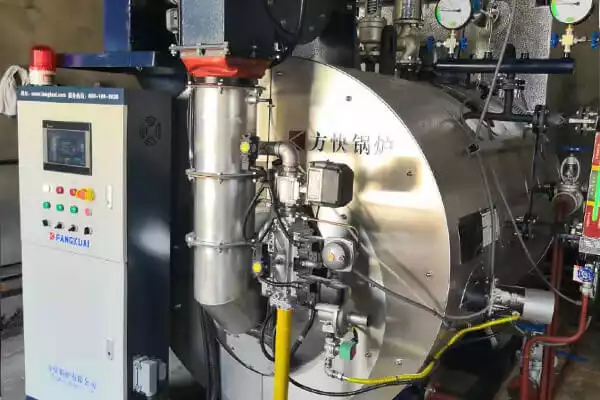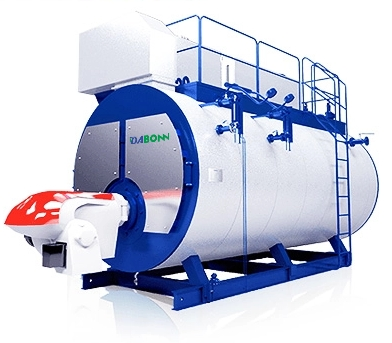
Introduction
There are various reasons why boiler pressure needs to be increased. In this article, we will discuss the most common reasons that boilers require additional pressure and how you can increase it.
Why is boiler pressure important?
Boiler pressure is important because it controls the amount of heat produced and lost, as well as the flow rate through your system. A higher boiler pressure means that more steam will be generated, which increases your efficiency and reduces energy costs.
Boiler pressure also affects how much water is used in each cycle of operation. If you have a high-pressure boiler system, there will be less loss due to evaporation during heating cycles compared with lower-pressure systems (about 10% less).
What causes low boiler pressure?
The Low Water Level in the Boiler
One of the fundamental reasons for low boiler pressure is the inadequate water level within the system. This can be caused by evaporation over time or improper filling during installation or maintenance. Insufficient water levels can result in reduced heat transfer efficiency and potential overheating of components, leading to pressure drops.
Leaking Boiler
A leaking boiler can result in the loss of water from the system, causing a drop in pressure. Leaks can occur due to deteriorated components, damaged seals, or corrosion over time. These leaks can be small and hard to detect initially, gradually reducing the pressure in the system.
Leaking Pressure Relief Valve
The function of the pressure relief valve is to release excess pressure and prevent the boiler from being over-pressurized. However, a malfunctioning valve can lead to continuous pressure loss. If this valve is leaking, it might not effectively maintain the desired pressure level.
Leaking Boiler Feed Pump
The boiler feed pump is mainly responsible for keeping the water level in the boiler within a safe range. If this pump is leaking, it can lead to inadequate water supply and subsequently low boiler pressure. Leaks can stem from damaged components or worn-out seals.
Faulty Boiler Pressure Gauge
A malfunctioning pressure gauge can provide inaccurate readings, leading to an incorrect perception of the actual boiler pressure. This can result in unnecessary adjustments and potential pressure drops.
High Ambient Temperature
In warmer weather, the ambient temperature can affect the pressure reading in your boiler. Higher temperatures can cause the water to expand, resulting in increased pressure. However, this isn’t a cause for concern as long as the pressure remains within safe limits.
What is the correct pressure for my boiler?
The pressure in your boiler is measured in pounds per square inch (psi). The more water you have and the hotter it gets, the higher the pressure will be. The correct pressure should be between 15 and 22 PSI.
How to top up the pressure on a boiler?
If you need to increase the pressure in your boiler, follow these ways:
Use the correct amount of water. The purpose of a boiler is to heat water, so you need to make sure that there is enough in it. If not, add more until you reach a point where there is an equal amount of space between each bubble on top and below. This means that all parts are being used efficiently!
Check your pressure gauge regularly to ensure that everything is working correctly. If not then adjust accordingly until everything looks good again (this might mean adding more coal or turning down some knobs).
Make sure that nothing else needs replacing before doing anything else. Such as changing out old parts or adding new ones.
Last, you need to ensure that you’re not over-pressurizing it. The best way to do this is by using a pressure relief valve.
What to do if the boiler does not repressurize?
If the boiler doesn’t repressurize, you can follow these ways. Identify the root cause of the problem and ensure your boiler is back to optimal performance.
Call a Professional
If you find that your boiler is not repressurizing despite your efforts, it’s advisable to call a professional boiler technician. They have the expertise and tools to diagnose the issue accurately and recommend the appropriate solution.
Check for Boiler Leaks
Leaks within the boiler system can result in a drop in pressure. Follow these steps to check for leaks:
a. Inspect visible components: Carefully examine the boiler and its connections for any signs of water leakage. Such as damp spots, puddles, or visible water trails.
b. Monitor pressure changes: If the pressure drops significantly shortly after repressurizing. it might indicate a hidden leak within the system.
Check the Pressure Gauge
a. Compare readings: Use a reliable pressure measuring tool to compare the reading on the boiler’s pressure gauge. If there’s a significant discrepancy, the gauge might be faulty.
b. Consider replacement: If the pressure gauge consistently shows incorrect readings, consider replacing it with a new, accurate gauge.
Ensure Proper Pressure Relief Valve Function
The pressure relief valve is essential for preventing over-pressurization. Make sure it’s working correctly:
a. Observe the valve: The pressure relief valve should release small amounts of water during operation. If water is continuously dripping from the valve, it might be malfunctioning.
b. Test the valve: Consult your boiler’s manual for instructions on how to test the pressure relief valve’s functionality. Follow the provided procedure to ensure it’s operating as intended.
FAQs.
Is low boiler pressure dangerous?
Low boiler pressure can be a concern as it might indicate leaks, system inefficiencies, or malfunctions. While not necessarily dangerous, it can lead to reduced performance and potentially cause damage if not addressed promptly.
What PSI should a boiler run at?
The recommended pressure range for most boilers is around 1 to 1.5 bars when cold. This corresponds roughly to 15 to 22 PSI.
Does low boiler pressure affect hot water?
Yes, low boiler pressure can affect the hot water supply. In some cases, it might lead to reduced hot water output or inconsistent water temperature.
Can I increase the boiler pressure when hot?
It’s generally not recommended to adjust the boiler pressure when the system is hot. Boiler pressure adjustments should be made when the system is cold to ensure accurate readings and safe operation.
Can I fix the boiler pressure myself?
Minor adjustments to boiler pressure can be done by homeowners, but more complex issues should be addressed by a professional boiler technician to ensure safety and proper diagnosis.
What should boiler pressure be when the heating is off?
When the heating system is off, the pressure gauge is typically around 1 to 1.5 bars (15 to 22 PSI), but exact values may vary depending on the specific boiler model and manufacturer.
Conclusion
With a little bit of knowledge and the right tools, you can increase boiler pressure easily. It’s important to understand that not all boilers require the same amount of pressure.
Get your best price
Quickly compare 3 FREE quotes
- Engineer quick quote
- The overall delivery speed is fast
- Financial choice
- Low installation costs and cost savings
25 years+ of boiler R&D
More than 20 innovative technologies
